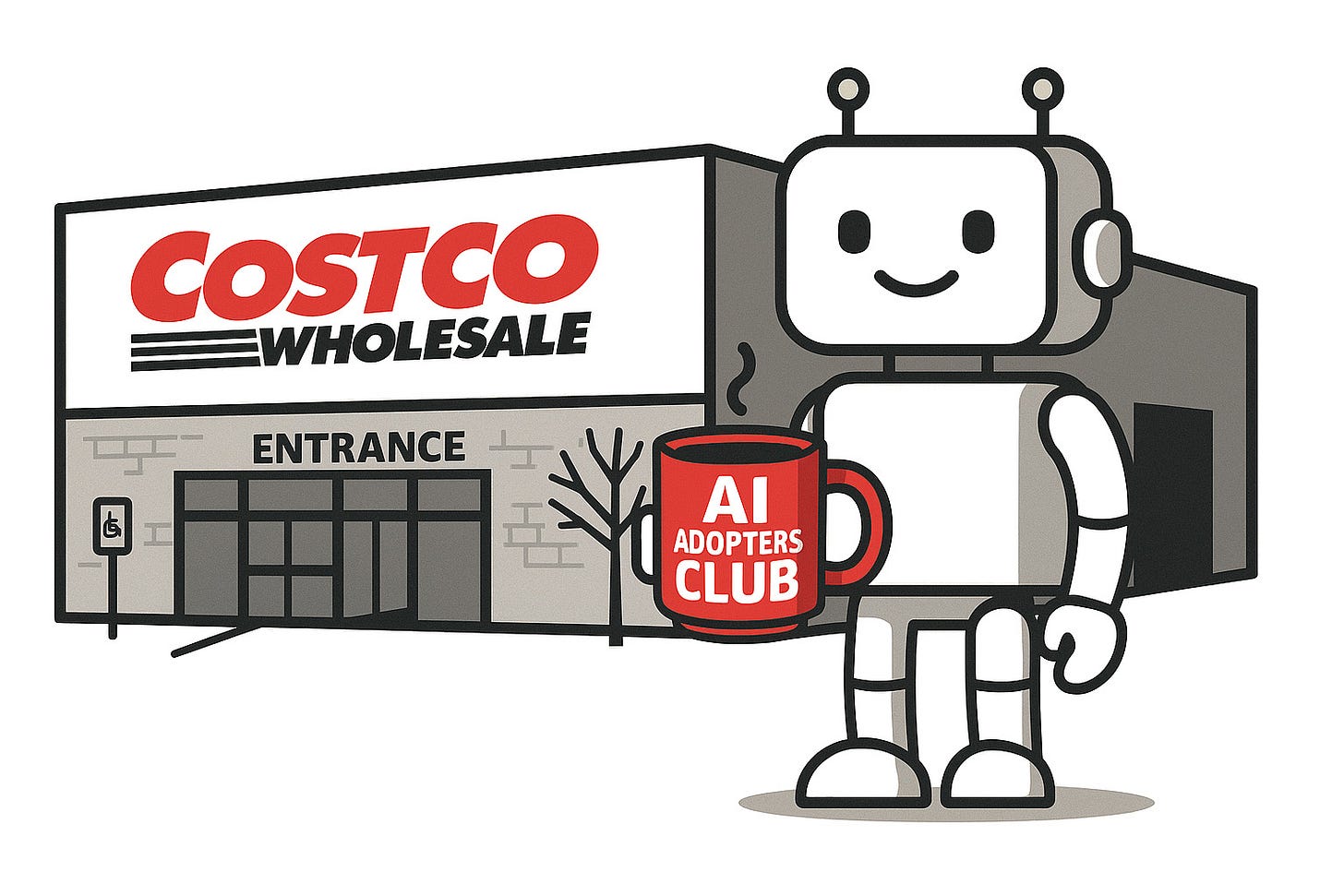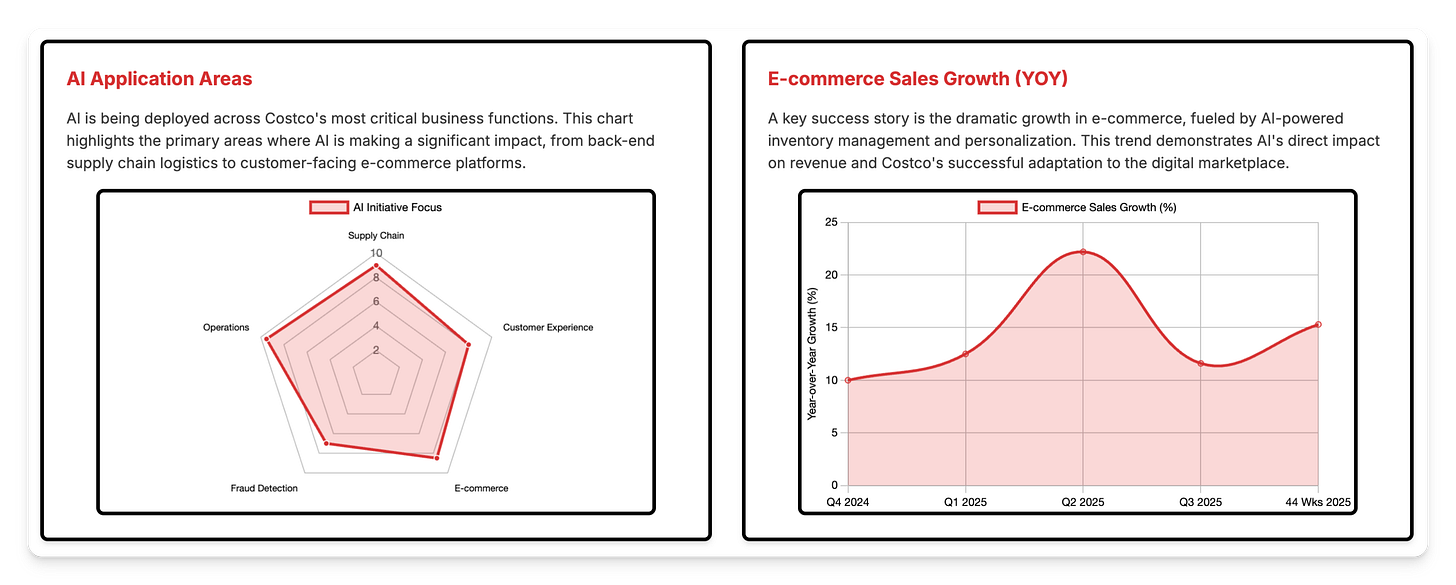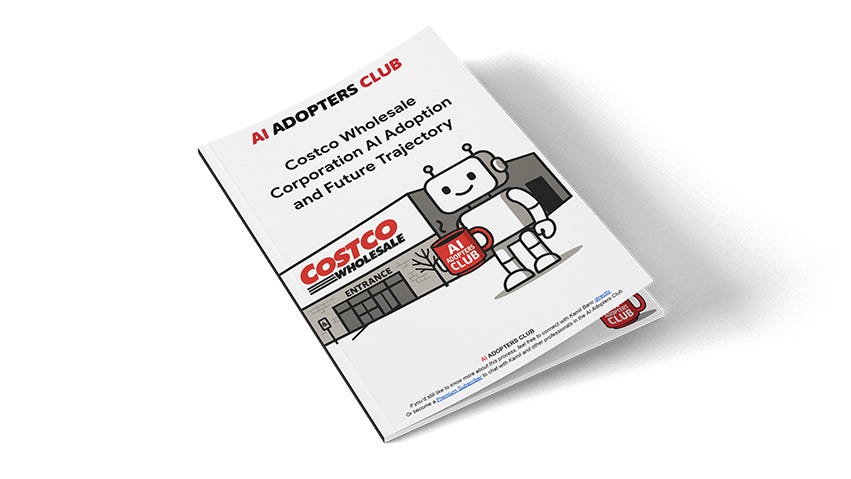Costco's Quiet AI Domination Strategy That Walmart Can't Copy
How Costco saved $100M by focusing on basics, not flashy tech
Hey Adopter,
I'm guilty of it too. Going to Costco and actually liking some of their clothing items. They have great shirts, underwear, and socks, if you ask me, and sometimes even the occasional shorts and pants. Now that I'm in my 40s, I have a different expectation of what it means to drop $500 in the club than what I used to have 20 years ago.
That shift isn't just personal. It's strategic. And Costco's quietly building an AI advantage around exactly this kind of member evolution.
While most retailers treat AI like a shiny new toy, deploying robot shelf-scanners and cashierless stores with tech conference fanfare, Costco took a different path. They're systematically embedding intelligence into their existing flywheel. The results speak volumes.
The Household Graph Advantage
Costco sits on something competitors can't easily replicate: pristine household-level data. Every purchase ties to a member account, creating what they call the "Household Graph". This isn't individual browsing history. It's longitudinal records of entire households' essential consumption patterns.
Amazon knows what you clicked. Walmart knows what you bought. Costco knows what your family actually needs and when you'll need it again.
This data quality difference is stark. With only 4,000 SKUs per warehouse versus competitors' hundreds of thousands, Costco's AI models achieve exceptional accuracy with less complexity. Fewer variables, cleaner signals, better predictions.
Their AI-powered bakery forecasting system alone saved nearly $100 million by predicting daily demand with surgical precision. No flashy announcements. No Silicon Valley theatrics. Just methodical execution that amplifies what already works.
Amplification Over Innovation
Where others chase moonshots, Costco focuses on amplification. Their AI strategy doesn't reinvent the business model. It supercharges the existing one.
The approach is surgical. Energy management AI trims electricity costs in real time. Predictive maintenance prevents equipment failures before they happen. Workforce scheduling algorithms balance service levels with labour efficiency.
Each initiative reinforces Costco's core advantage: operational excellence that enables rock-bottom prices. The technology serves the strategy, not the other way around.
Member Trust as Strategic Moat
Costco's 93% renewal rate creates a permission asset competitors lack. Members trust Costco with their data because Costco has earned it through decades of putting member value first.
This trust translates into AI adoption advantages. When Costco rolls out personalised features or retail media networks, members are less resistant than they'd be with Amazon or Facebook. The company's reputation for ethical behaviour becomes a competitive moat in an era of privacy concerns.
The Quiet Transformation
But here's where most analysis stops. What Costco's really building goes far deeper than operational efficiency. They're constructing an AI-powered defensive position that becomes stronger as competitors get more aggressive.
The full strategic picture reveals something remarkable: a methodical blueprint for AI dominance that doesn't rely on being first, flashiest, or most funded.
Download the comprehensive 27-page analysis of Costco's AI strategy to discover:
The three-pillar framework driving their measured AI rollout
Why their "fast follower" approach actually creates competitive advantages
Detailed ROI metrics from their supply chain AI implementations
Strategic recommendations for scaling successful initiatives
How they're positioning against the coming wave of AI shopping agents
This isn't another surface-level tech case study. It's a complete strategic dissection of how a traditional retailer turned AI into an unassailable advantage.







